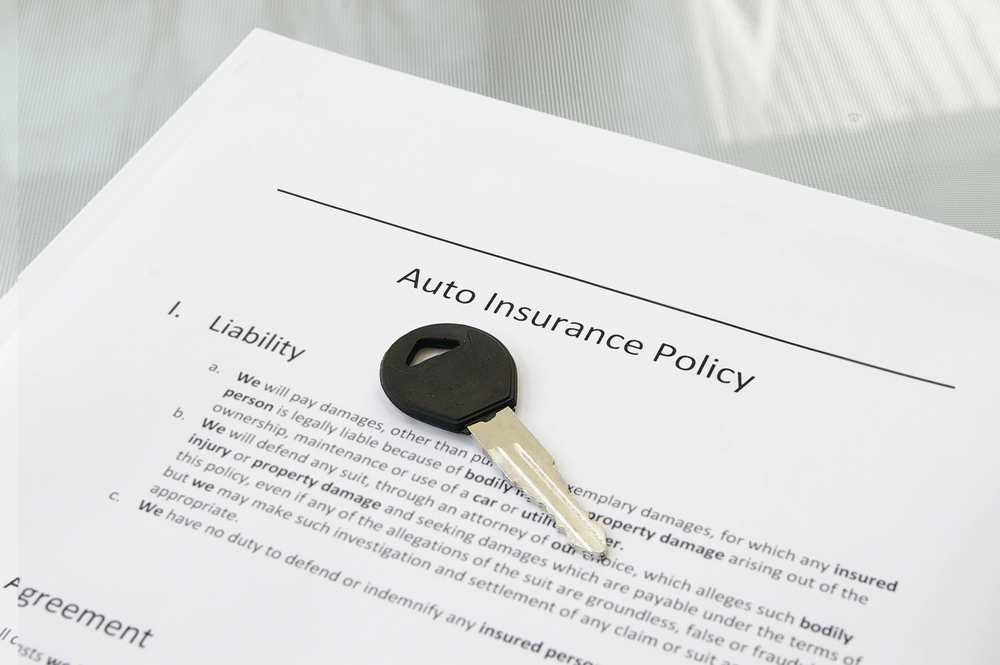Car accidents injure one person in Arizona every 10 minutes, costing the state’s residents more than $20 billion in economic losses.
Arizona law requires people who cause car accidents to pay their share of the damages, but what can you do when an at-fault driver’s insurance won’t pay?
What Are Your Options When the At-Fault Driver’s Insurance Won’t Pay?

Arizona is a fault-based car insurance state. Drivers who negligently cause injuries or property damage in a car accident must pay their share.
Most drivers turn to their auto liability insurance policy to cover the amounts they owe to another person due to a car accident. However, sometimes the insurance company won’t pay. When this happens, you can pursue one or more options to obtain compensation.
Request an Internal Review
Insurance companies require their employees to follow internal standards when settling claims. Sometimes adjusters make mistakes or fail to follow internal guidelines.
When you request an internal review, someone other than the adjuster who made the initial decision on your claim will review it. Suppose that person finds that the adjuster misinterpreted the policy provisions or made a decision inconsistent with the facts. In that case, the insurance company may change its decision and pay your claim.
Requesting an internal review is a good first step to take to avoid pursuing more drastic actions, such as filing a lawsuit. However, if the company refuses to change its decision, you may need to try other options.
File a Claim With Your Insurance Company
If the at-fault driver’s insurance won’t pay, you may have coverage on your auto insurance policy that applies to your claim. Collision coverage can be used to pay for the damage to your vehicle.
If your insurance company determines that you were not at fault for the accident, your rates will likely not increase. Your insurance company will attempt to recover what it paid on your claim from the at-fault party’s insurance, a process called subrogation. Some insurance companies will also try to recover your deductible for you.
While this option requires you to pay your deductible, it allows you to get your car fixed without waiting for the other person’s insurance to agree to pay for your damages. It also shifts the burden of recovering from the other insurance company to your insurance company instead of you.
If you have medical payments coverage on your auto policy, it will provide limited coverage for your medical bills. You may also be able to use your health insurance policy if you have one. However, these coverages only apply to specific medical expenses and will not compensate you for other losses, such as pain and suffering and lost wages.
Sue the At-Fault Driver

If the at-fault driver’s insurance won’t pay, you can file a lawsuit against the driver. If you win your court case, the insurance company must pay the settlement up to the policy’s limits unless the policy is not in force or there is some other valid coverage issue.
You can file a small claims lawsuit if your total damages are less than $3,500. For damages that exceed that amount, you must file a personal injury lawsuit in the Superior Court of Arizona.
Whether your case goes to court or not, working with a Phoenix car wreck attorney is a good idea. It is particularly valuable to work with an attorney if you need to file a lawsuit because an attorney will be able to help you navigate court procedures and make sure you don’t miss any deadlines. We can also help you gather and present the evidence you need to prove your case.
In most cases, you have two years from the date of your injury to file a lawsuit. If you miss this deadline, the court may dismiss your case.
File a Claim With Your Insurance and Sue the At-Fault Driver
If you only have property damage and the at-fault driver’s insurance won’t pay, you can use your collision coverage to pay for the damage to your vehicle and then sue the at-fault driver to recover your deductible in small claims court. However, before you take this step, ask your insurance company if they will attempt to recover your deductible from the at-fault party for you.
If you received injuries, you may choose to use your collision coverage to pay for the damage to your car and sue the at-fault driver for your medical bills and other damages. However, you will not be able to recover expenses paid for by your insurance, but you may be able to recover your copays and deductibles.
Even if your insurance paid for your medical bills, you can sue for other damages, such as lost wages and pain and suffering. You may also sue the at-fault driver if the insurance company paid for your damages but the policy limits were too low to cover all your losses.
File a Complaint With the Arizona Department of Insurance
All insurance contracts in Arizona have an implied covenant of good faith and fair dealing. If the at-fault driver’s insurance won’t pay and you believe they don’t have a legitimate reason for that determination, you can file a complaint with the Arizona Department of Insurance and Financial Institutions (DIFI).
DIFI will investigate your complaint, and if it finds the insurance company did something wrong, it may force the insurance company to pay your claim. It may also penalize the insurance company for improperly handling your claim.
The insurance company may be guilty of violating Arizona law if it:
- Misrepresented relevant facts or insurance policy provisions
- Imposed requirements that didn’t exist in the insurance policy
- Offered a lower-than-reasonable settlement amount
- Refused to settle the claim when liability was reasonably clear
- Did not explain any claim denial or settlement offer
Arizona law requires insurance companies to conduct a reasonable investigation and consider all available information before refusing to pay a claim. For example, an insurance company can’t deny a claim solely because the policyholder denied causing the accident or told the insurance company not to pay. It must investigate the claim and decide based on all available evidence, not just the evidence supporting the company’s desire to avoid paying the claim.
What If the At-Fault Driver’s Insurance Won’t Pay the Full Amount?

Arizona law requires drivers to carry at least $25,000 per person and $50,000 per accident in bodily injury liability coverage. The cost of a serious injury claim can easily exceed those figures, resulting in the insurance company only covering part of your damages.
If this happens, you may need to use your underinsured motorist coverage to pay for the portion of your damages that exceeds the policy limits of the at-fault driver. In cases where the at-fault driver has no insurance, you may need to file a claim under your uninsured motorist coverage.
If you don’t have these coverages, you can pursue recovery by suing the at-fault driver. However, many people don’t have the resources to pay for any settlement you might win.
In some cases, the at-fault driver may have additional liability insurance through an umbrella or other insurance policy that could apply. If the at-fault driver’s insurance refuses to pay the full value of your claim for reasons other than the policy limits, our personal injury attorneys can help you recover compensation by negotiating with the insurance company or filing a lawsuit.
How Does the Insurance Company Determine Who Is at Fault?
Arizona is a pure comparative fault state. Any persons whose negligence contributed to the cause of an auto accident must pay a share of the damages equal to their share of the fault.
For example, if you are 30% at fault for the accident and the other party is 70% at fault, you must pay 30% of the other party’s accident-related damages. The other party must pay for 70% of your accident-related damages.
To determine each party’s share of fault, the insurance company must conduct a thorough investigation and reach a reasonable conclusion based on the evidence. The adjuster will typically review the police report, the testimony of the drivers and witnesses, damage to the vehicles, and characteristics of the accident scene to assess fault.
The percentage of fault the adjuster assigns to each party is subjective, and it is common for the insurance company for each party to attempt to negotiate an agreement. If the at-fault driver’s insurance won’t pay because of a dispute about liability, you may need to file a lawsuit. The court will then determine who is at fault based on the evidence presented by both parties.
What Are Some Reasons the At-Fault Driver’s Insurance Might Not Pay?
The most common reason insurance companies refuse to pay a liability claim is that they do not believe the person they insure negligently caused the accident. In some cases, the insurance company may accept partial liability but refuse to pay the full amount because it believes you or some other party share a portion of the blame for the accident.
Another common reason for a denial is that the insurance company does not believe your damages are as much as you claim or that they result from the accident. For example, the insurance company may think you’re exaggerating your level of pain, that you are refusing to go to work when you are physically able, or that you are trying to get paid for injuries or property damage caused by a pre-existing condition or a previous accident.
Some other reasons the insurance company may deny your claim include:
- Policy was not in force when the accident happened
- Not enough coverage to pay for all of your damages
- Insured person violated the terms of the policy
- Claim is out of statute
Arizona law requires the insurance company to provide a written explanation of any refusal to pay a claim. If you don’t get one, ask for one.
What Damages Can You Recover From the At-Fault Party?

The at-fault party owes you compensation for the economic and non-economic losses caused by the accident. Financial losses include damages you can easily put a dollar figure on, such as the cost to repair or replace your vehicle, your medical and physical therapy bills, missed work and reduced future earnings.
Non-economic losses include the pain and suffering caused by your injuries, loss of function, disfigurement and loss of enjoyment. If you can prove the insurance company violated the law in its refusal to pay your valid claim, the court may award you an additional amount on top of your personal injury settlement to penalize the insurer for wrongdoing. Our personal injury attorneys can help you identify what types of compensation you can recover.
Can an Attorney Help If Someone Hit My Car and Their Insurance Won’t Pay?
To win your court case when the at-fault driver’s insurance doesn’t pay, you must prove that the other driver’s negligence caused your accident and caused the damages for which you seek compensation. You must also substantiate the monetary value of your damages.
A personal injury attorney will thoroughly investigate who is at fault and gather the evidence needed to prove it in court. Your attorney may need expert witnesses to prove the other driver was at fault or that the accident caused your damages. You may also need expert testimony to prove the monetary value of your damages.
A car accident attorney in Phoenix can help you determine if the insurance company violated the law by denying your claim. The insurance company can use anything you say against you, so hiring an attorney early in the process protects your claim. Our personal injury attorneys will negotiate for you and advise you about what you should and should not say. We will work to get you compensation for your losses when you find yourself saying, “My car was hit and their insurance won’t pay.”
Where Can You Get Help When the At-Fault Driver’s Insurance Won’t Pay?
The team at the Sargon Law Group understands how frustrating it can be when the at-fault driver’s insurance won’t pay. You shouldn’t have to exhaust your savings or go without the medical care you need because of someone else’s negligence. Contact us today to schedule a free consultation.
